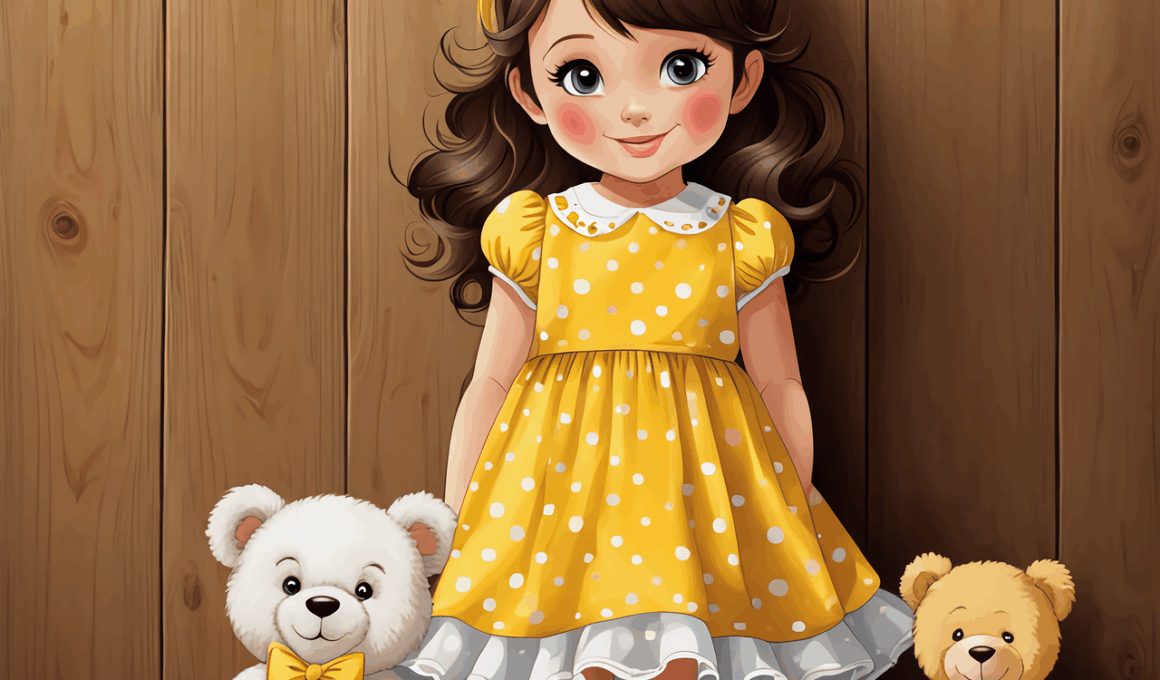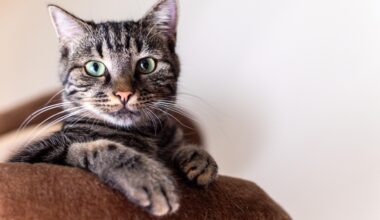The Impact of Playtime on Kitten Behavior and Temperament
Playtime is essential for kittens, as it significantly affects their behavior and temperament. Engaging in playful activities fosters physical and mental development. Kittens that play regularly exhibit reduced anxiety and stress levels. The benefits of play extend beyond mere enjoyment, contributing to skills, coordination, and confidence. Through play, kittens learn crucial socialization skills, preparing them for interactions with other pets and humans. Observing a kitten during play can reveal its personality traits, with playful behavior often indicating a more outgoing and adaptable kitten. Types of play can include chasing, pouncing, and climbing, all of which help enhance their natural instincts. Providing a variety of toys can further stimulate their curiosity and encourage exploration. Consider offering items that stimulate both physical and cognitive skills while maintaining their interest. Interactive toys can strengthen the bond with their caregiver as well. When kittens play together, they learn essential boundaries and respect each other’s space. Remember, the goal is to ensure that playtime is safe, enriching, and engaging, thereby promoting healthy development and well-adjusted adult cats. Effective playtime strategies will lay the groundwork for positive long-term behavior.
Understanding the different types of play can significantly enhance your kitten’s experience and development. Kittens enjoy solo play, where they entertain themselves with toys while developing crucial skills independently. However, social play is equally important and involves interaction with other kittens or humans. This type of play fosters social bonds and helps young cats develop important social skills, such as communication and understanding body language. Play can also take on forms such as chasing and wrestling, which mirror behaviors seen in their adult counterparts. Introducing varied play styles mimics their natural hunting instincts, while still allowing emotional growth. High-energy play sessions help burn off excess energy but should also be balanced with calm moments to avoid overstimulation. Interactive toys or lazers can keep your kitten entertained and physically active. Providing access to climbing structures and tunnels can also enhance their playtime. Regular engagement through play encourages exercise, contributing positively to their health. The key is to tailor playtime to your kitten’s unique preferences, ensuring they remain excited and eager. By recognizing the importance of both solo and social play, you’ll effectively nurture a happy, healthy, and well-adjusted feline friend.
Impact of Play on Behavior
The type and duration of playtime can significantly influence behavior development in kittens. Kittens that have ample play opportunities tend to exhibit more balanced and less aggressive behaviors. Stress relief through play is vital, as it allows kittens to express themselves and release pent-up energy. If they do not receive enough play stimulation, they’re likely to develop behavioral problems. Playtime encourages the expression of instincts, such as hunting and pouncing, transforming these instincts into healthy habits. It’s essential to monitor your kitten’s engagement levels, as individual preferences can vary greatly. For instance, some cats might prefer vigorous play with toys that mimic prey, while others may exhibit a preference for gentle play, using soft items. Owners should take note of their kitten’s reactions during play, adapting accordingly to keep them interested and engaged. Variety is key to preventing boredom and ensuring every play session remains stimulating. Additionally, the environment should be safe and enriched, providing various toys and structures for exploration. A kitten’s temperament can also benefit from consistent play sessions, developing resilience and adaptability. Investing time in play can create a strong, trusting bond between kittens and their caregivers.
Understanding the balance between play and rest is critical in nurturing your kitten’s overall growth. Kittens require a significant amount of sleep, typically around 16-20 hours per day. Overstimulating your kitten can lead to irritability or stress, impacting their temperament negatively. It’s essential to establish a routine that includes play, rest, and feeding times. Incorporating play sessions into their daily schedule will not only keep them entertained but also help regulate their energy levels. While some sheer energy is beneficial for growth, too much disruptive play can lead to behavioral issues. Recognizing signs that your kitten is tired, such as decreased activity or disinterest in toys, is crucial. When they show such signs, it’s time to allow them to rest. Creating an inviting and quiet rest area can significantly help in this regard. Providing a space that feels safe and comfortable allows for more effective recovery. Furthermore, when kittens feel secure in their resting areas, it encourages long-term emotional health and resilience. Balancing playtime and rest ultimately contributes to building a well-rounded temperament and behavior in your cherished feline friend.
Playtime Activities for Kittens
A variety of playtime activities can significantly enhance your kitten’s exercise regime and overall enjoyment. Simple toys like feather wands, balls, and interactive puzzles can stimulate their curiosity while providing active engagement. However, the specific toys and activities should match their developmental stages and interests. For younger kittens, responsive toys are ideal, as these keep them engaged while they learn to pounce and chase. As they grow, they may develop preferences for more complex interactive toys that challenge their cognitive abilities. Consider incorporating plush toys that resemble prey animals, providing them with a target to practice their hunting skills. You can also create DIY toys using household items, like crumpled paper or strings, prompting exploration and play. Outdoor play is another excellent option, offering fresh stimuli and promoting physical activity; supervision is essential in these scenarios, ensuring safety. Moreover, group play with siblings or other friendly pets can facilitate social learning and improve coordination. Always observe your kitten during play, adapting activities to their mood and energy levels while ensuring the environment is safe and exciting, thus maximizing the benefits of playtime.
Engaging in play not only enhances your kitten’s mental and physical development but also strengthens the bond between the pet and its owner. Over time, regular interaction during play can lead to a stronger relationship built on trust and affection. Understanding your kitten’s signals during play is crucial for fostering this bond. Positive experiences during play can encourage your kitten to seek companionship with you, making them more affectionate and responsive. Furthermore, utilizing treats during play can help in reinforcing positive behavior, creating a rewarding loop that benefits both the kitten and the owner. Engaging in interactive play sessions can help you understand your pet’s preferences, needs, and personality better. This knowledge facilitates meeting their needs more effectively, ultimately contributing to a well-adjusted adult cat. Additionally, observing your kitten’s play behavior offers insight into their health, as lethargy, lack of interest in play, or sudden behavioral changes often signal underlying issues. Maintaining open lines of communication and a playful approach not only enriches their lives but also encourages strong emotional ties. These connections can impact your kitten’s social skills positively as they mature, leading to less anxiety and improved interactions in the future.
Conclusion: Nurturing Through Play
Establishing a consistent and engaging playtime routine is integral to nurturing your kitten’s development and temperament. The relationship between play and behavior highlights the critical role interactive activities play in molding your kitten into a well-rounded feline friend. Regular play not only satisfies their instinctual needs but also strengthens the bond with caregivers. By observing your kitten and adjusting play styles based on individual needs, you can create enriching experiences that support their growth. Tailoring playtime to your kitten’s distinct personality will promote their confidence, adaptability, and even enhance problem-solving skills. Remember, safety should always be a priority during play. Enriching their environment with engaging, safe toys can positively influence their early experiences, setting the stage for happy adult cats. Each play session should leave your kitten feeling fulfilled and excited to explore further. Furthermore, the lessons learned during playtimes can translate effectively into their adult lives, reflecting in their behaviors, friendships, and interactions. Investing time and effort into this crucial aspect of your kitten’s life allows them to flourish, resulting in happier, healthier cats that enrich our lives and homes.
In conclusion, taking the time to understand the nuances of kitten playtime can significantly enhance the quality of life for your pet. It’s crucial to appreciate how play impacts behaviors and establishes a foundation for a fulfilling life. Hence, embracing the importance of play in their early years assures a lifetime of happiness for both kittens and their human companions.


